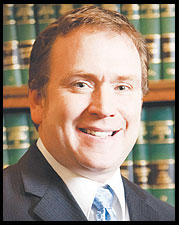“I am, indeed, a king, because I know how to rule myself.”– Pietro Aretino, (1492-1556) Italian author, playwright, poet and satirist.
Often times, in referencing our clients’ rights, attorneys will cite to various key provisions in the Constitution, state statute, or recent court holdings, but the origins of our rights run much deeper.
The founding of this nation – the great American experiment in limited government based on the philosophy of the Enlightenment – provided the Americans people were not subjects of a king or otherwise instruments of government, but citizen-sovereigns, who not only had liberty to govern their own affairs, but to preside collectively as sovereigns over their respective representatives in state and national government.
In the Declaration of Independence, Thomas Jefferson asserted our natural rights to King George, noting, “We hold these truths to be self-evidence, that all men are created equal, that they are endowed by their Creator with certain unalienable Rights, that among these are Life, Liberty and the pursuit of Happiness,” and “That to secure these rights, Governments are instituted among Men, deriving their just powers from the consent of the governed…”
Thus, as citizen-sovereigns, the rights of Americans are not permitted by the government, or even established by the Constitution, but rights conferred on individuals by the very laws of nature – or “natural law.” It is only through social contract that, despite being our own sovereigns, we have voluntarily consented to surrender some rights for the sake of living in a noble society.
This sentiment is echoed in the Bill of Rights. The Ninth Amendment provides: “The enumeration in the Constitution, of certain rights, shall not be construed to deny or disparage others retained by the people.” The Tenth amendment provides: “The powers not delegated to the United States by the Constitution, nor prohibited by it to the States, are reserved to the States respectively, or to the people.”
Thus, the national government of the United States was never intended to be all inclusive, but essentially limited to printing money, declaring war, establishing treaties, regulating interstate commerce, establishing the post office, and making laws necessary and proper to enforce the constitution.
People who envision an expanding role and broader powers for the national government to better meet our challenging times would be wise to consider the words of columnist Joseph Sobran: “By a very conservative estimate, a hundred million people have died at the hands of their own governments in this century. Given that record, how bad could anarchy be?”
As you go about your daily routine, remember you are, by natural law, a citizen-sovereign and be certain to conduct yourself regally.
2650 N 48th St. Lincoln, NE 68504 • Phone: (402) 466-8444
888-883-2483 • Fax: (402) 466-1793


